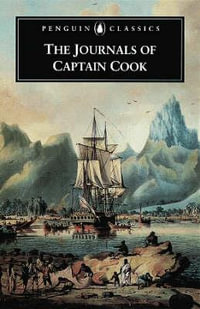Early twentieth-century Iran had been dominated by the competing influences of the two great imperial powers of the time - Russia and Britain - making it difficult for a third power to establish a foothold. But an emergent, highly industrialised and assertive Germany in the 1930s became an attractive ally through which Iran could cut loose from domination by Britain and the Soviet Union, allowing it to seek modernity outside the constraints of old imperial interests. This led to the development of close commercial ties between Reza Shah's Persia and Hitler's Germany in the interwar period, an aspect of German foreign policy that is often overlooked. It was the National Bank of Persia, established in 1927 under German management, and with Kurt Lindenblatt as its governor, that was to be the vehicle for Germany's commercial expansion into Iran. The Bank was a vital engine driving industrialisation, even after Lindenblatt retired and was followed by Gholam Reza Amir-Khosrari and a board of directors including Hossein Ala and Abdul Hossein Hazhir.
By the mid-1930s, a new German foreign policy approach of active diplomacy fortified initial inroads into the Iranian economy, building upon the foundations laid by individual entrepreneurs, the National Bank and the construction of the Trans-Iranian Railway. Iran evolved into an attractive country for international trade and, at the outbreak of World War II, Germany was Iran's largest trading partner - surpassing both the Soviet Union and Britain. These close ties reveal a complex relationship between Germany and Iran, and an admiration of the Nazi's brand of industrial, scientific and organisational progress. It was, however, a relationship that came to an abrupt end with the Allied invasion of Iran in 1941 that deposed the Shah. Khatib-Shahidi delves into previously untapped German primary sources to explore the nature of German involvement in Iran between the wars, examining how it came to be moulded by a handful of individuals. This book is a revealing resource on the historical ties between Iran and Germany, making it indispensable for students and researchers of European Imperialism and Colonialism in the Middle East as well as of Iranian Political and Economic History.
Industry Reviews
'Dr Khatib-Shahidi has written a most percipient history of the surprising role the National Bank of Persia played in German-Iranian relations before World War II. He has based his study on an exhaustive trawl through German archives including that of the Ministry of Finance and of the German Foreign Ministry in Berlin. From the many dispatches and reports the reader gains a clear insight into the machinations of the German directors of the Bank in their attempts to further their political and economic goals. This is a most valuable addition to the history of Iran's foreign relations and of German policy and to the economic history of the Middle East in general.' Derek Hopwood, University of Oxford 'This is an excellent and long overdue study of an important but hitherto neglected subject. Based on a thorough examination of German archives, some only recently available, the book sheds much light on the relations between Germany under Adolf Hitler and Reza Shah's Iran. Its account of the National Bank of Persia is highly original but it also contains a wealth of information about the broader political and economic history of interwar Iran, much of which will be new to an English-speaking readership. The book is well written and it will become essential reading for specialists on the period as well as being of interest to a wider general audience.' Stephanie Cronin, University of Oxford
























